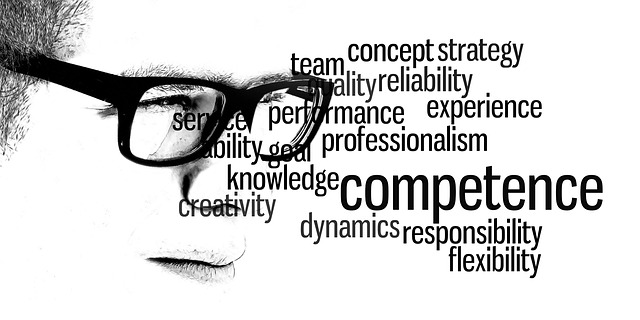|
A few years ago, a CEO client asked me to interview Phil, a potential new member to his sales team. One of the questions I asked, was, "How do you feel about accountability?" This is one of my favorite questions for any team member; sales person, leader and even a business-owner or CEO.
Responses have included: "Jeff, hold my feet to the fire." / "It's crucial you challenge me and help me do...what I say I'm going to do." / "Jeff, please keep me focused, on-track and responsible."
Phil's response, "What do you mean?"
Huh? What do I mean? Was he serious?! What's confusing? (Phil wasn't hired.)
To help you and your team avoid confusion and gain better understanding into the importance of accountability, in your professional and personal lives—we're fortunate to feature the insights of my buddy, Sam Silverstein. He's a talented, fellow Hall of Fame speaker and bestselling author—who focuses on accountability—plus its significance and successful execution.
Jeff Blackman: Sam, please define accountability...
Sam Silverstein: Accountability is keeping your commitments to others. Because when people are involved, relationships are always involved. When an individual or organization masters relationships—they typically master accountability.
JB: How does it differ from responsibility?
 SS: You're responsible for things, but you’re accountable to people. You're responsible for the sales report, the proposal that's due or completing a project. However, I'm accountable to you. And as a leader, I'm accountable to you first. Plus, it's my commitment to lead you to be your best. SS: You're responsible for things, but you’re accountable to people. You're responsible for the sales report, the proposal that's due or completing a project. However, I'm accountable to you. And as a leader, I'm accountable to you first. Plus, it's my commitment to lead you to be your best.
JB: How does one create an accountability culture?
SS: A culture that inspires and prioritizes accountability is designed by leadership. This doesn't happen by chance or with compensation. This type of culture is first defined with a set of well-thought-out values. It then becomes reality, because leadership is committed to living those values and making those values non-negotiable. The five steps to build an accountable culture are:
- Define the culture
- Model the culture
- Teach the culture
- Protect the culture
- Celebrate the culture
JB: What are common misunderstandings about accountability?
SS: Accountability isn't only a way of doing. It's a way of thinking. Specifically, how we think about people. When we value people, we see them and commit to them differently. This produces better results.
JB: When one says, "Hold me accountable!" and then they don't do what they promised to do, how do you then...hold them accountable?
SS: You don't hold people accountable. You help them be accountable by providing the training, resources and authority to get a job done. If someone chooses not to get the job done, that's on them and requires a different conversation.
JB: What questions should a leader be asking their team, that reflects commitment...and promotes accountability?
SS: A leader should dig deep, to know their people. Asking questions about one's family, professional and personal goals, and where help or training is needed shows you care. This starts, promotes and maintains an accountable relationship.
JB: What's the difference between a tactical vs. a relational commitment?
SS: Tactical commitments are spoken, deal with transactions, and are agreed to by both parties. Relational commitments are not spoken, for the most part, and build a connection between people. A tactical commitment gets someone a report by a specific time. A job description is a list of tactical responsibilities. A relational commitment could be a commitment to live by defined values, a commitment to—your word is your bond, a commitment to a safe work environment, (emotionally and physically), or a commitment to stand by you when there's trouble or chaos.
JB: What role do values play?
SS: Values are the "how" of any business. They define the "sandbox" we're going to play in and detail how we're going to act from a character standpoint, how we're going to communicate with each other, how we define professionalism, and how we connect to and serve the community. Without values and a commitment to those values, it's impossible to build accountability inside of any relationship or organization.
JB: You say, "accountability is the future of leadership"—how so? 
SS: Products and services are abundant. People can take their business anywhere. Likewise, people can choose the environment they want to work in. The accountable leader will naturally attract and retain the best people. It's in this environment—engagement is greatest, productivity highest, and profitability maximized.
JB: What role do recognition and celebration play, in creating accountability?
SS: When you celebrate accomplishments big and small, and call attention to the people who are effectively living the culture you create and protect—you show how it's done. You demonstrate a visual model everyone can follow.
JB: It seems as if, accountability can't exist, without first defining expectations. So how do you best do that?
SS: This goes back to your values. The values are the expectations of how you're going to handle any situation or challenge before that situation even presents itself. Just make sure your decisions align with your values.
JB: Then, how do you also establish consequences?
SS: If your values are being modeled and taught, yet one doesn't live the values and doesn't respond to coaching—then maybe it's time to allow that person to go elsewhere.
JB: How does one requesting others to be accountable, first make sure—they always honor their commitments?
SS: It's critical to first understand the Ten Commitments of Accountability and then make sure, through self-analysis, you're living those commitments.
The 10 Commitments of Accountability are:
1. Commitment to the truth
2. Commitment to what you value
3. Commitment to "It's all of us"
4. Commitment to stand with you when all hell breaks loose
5. Commitment to the faults and failures, as well as the opportunities and successes
6. Commitment to sound financial principles
7. Commitment to helping individuals achieve their potential and be their best
8. Commitment to a safe place to work
9. Commitment to your word is your bond
10. Commitment to a good reputation
For more of Sam's commitments to you, plus success strategies, please see: https://samsilverstein.com/
Here's a "classic" cut from Jeff's Video Vault—to help you believe and achieve—with goals and a plan. (You'll probably recognize the host—who at the time, had more hair and a far bushier mustache!)

BlackmanStartYourJourney video: (2:32)
• • • • •
Want to see how Jeff helped one client drive results?
Please take a peek at this video, where Chris Randall, CEO of Ultra Risk Advisors, talks about Jeff's positive and powerful impact on his team:
To explore how Jeff can help you and your team drive results—with speaking, training, coaching, consulting and ongoing reinforcment—in-person or virtual, please contact Sheryl Kantor at: [email protected] or 847.998.0688
|